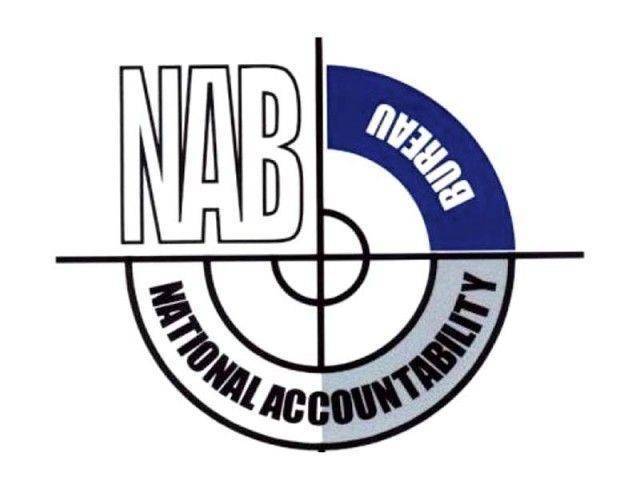LAHORE - The accountability process involving the Sharif family is likely to hit snags due to multiple factors, especially leaning of the NAB authorities towards the ruling family and supervisory role of the Supreme Court over the trial court proceedings, say top legal experts of the country.
NAB authorities, the lawyers say, have not taken any members of the Sharif family into custody for investigation into Panama Papers case and for allegedly amassing assets abroad, as they do in many other cases. They say it clearly shows that the accused have so far been enjoying the status of ‘accused’ but ‘out of NAB’s custody’.
On July 28, the Supreme Court, in its verdict in the Panama Papers case, had told the NAB to file references against disqualified prime minister Nawaz Sharif and his family members as well as Finance Minister Ishaq Dar.
The NAB authorities finally complied with the orders on yesterday by approving filing of four references – three against the Sharif family and one against Dar – at the executive committee meeting headed by the NAB chairman.
No member of the Sharif family appeared before the NAB to record their statement. NAB officials also did not issue any arrest warrants for the accused members of the family.
Talking to The Nation, former attorney general of Pakistan Irfan Qadir said the Supreme Court had the supervisory role in the case, as it had appointed a monitoring judge, and now it should own it because it was often said that law is equally applied to everyone.
He argued, “The NAB has been taken over by the Supreme Court and now it has a role in decision making.” He said the PML-N used to be happy at such decisions and now the PTI was happy.
“Now it is responsibility of the SC to ensure the law is being applied equally otherwise the SC as an institution will face a setback,” he contends.
The other factor, which may cause delay in the accountability of the Sharif family, is that a review petition has been filed with the Supreme Court by the ruling family. How is it possible for a trial court to conduct proceedings on the NAB references against it, he asked. “Why the SC has not been deciding the review petition filed by the Sharif family,” Irfan Qadir questioned, saying “the apex court should decide.”
He said that stance of the Sharif family was valid because they had filed a review petition against the Panama verdict in the Supreme Court. They have not appeared before the NAB and it seems they will also not appear before the trial courts until the review petition is decided by the SC itself, he said. He argued that implementation of NRO case, implementation of steel mills case and Gilani’s contempt proceedings stopped after review petitions were filed in the apex court. He suggested that the SC should constitute a larger bench and set aside all wrong decisions made in the past. He said the court should not have disqualified the prime minister.
Abid Hassan Minto, a known lawyer, says the procedure of the trial has been written but he believes that it is discretion of the NAB court judge if he wants to issue arrest warrants for any accused or just issue summon notices. He says, “The common man is not taken into custody by the NAB or tried in the NAB court; it is always the powerful who is tried,” he said. He refuted that the NAB law had lacunas, saying that it was written and it was clear and applied equally to everyone. Advocate Azhar Siddique says that NAB has been lenient towards the Sharif family since the day the Supreme Court ordered it to investigate the Sharif family members for allegedly having offshore companies, and file references against them.
Azhar says the NAB procedure is not equally being applied in the country. “It has become a tradition that NAB courts in Sindh issue non-bailable arrest warrants for the accused. This is not in case of NAB courts of Lahore or Rawalpindi,” he opines. He says that NAB did not issue arrest warrants for the Sharif family members though it could have issued if it wanted to do so.
“The Sharif family would have come to courts for bails if their arrest warrants were issued,” says Azhar. “And the courts would have asked them to join the NAB investigation,” he adds. But this has not happened. This shows mala fide intention on part of the NAB chairman.
When asked that the NAB had been told to complete the trial within six months and what would happen if it fails to comply with the order, Azhar said it would be contempt of court but it is discretion of the court if it wants to initiate contempt proceedings against the NAB chairman. “Perhaps the things are going to re-investigation,” says Azhar. “Weak references are being filed and NAB judges may return them to NAB for re-investigation,” he added.
An official of the NAB courts in Lahore said on condition of anonymity, “It has become a practice in Karachi that courts issue non-bailable arrest warrants for the accused and ask them to come again after bails and surety bonds but this is not the case in Lahore and Rawalpindi, as courts here usually issue summons”.
Law is equal and the procedure has already been written there but why it is not being adopted equally is a question, he says.
He says he doesn’t know the answer to this question. He said that NAB court judges had the discretion to adopt the procedure for the case they were hearing, so they might summon any accused if required.
FIDA HUSSNAIN






